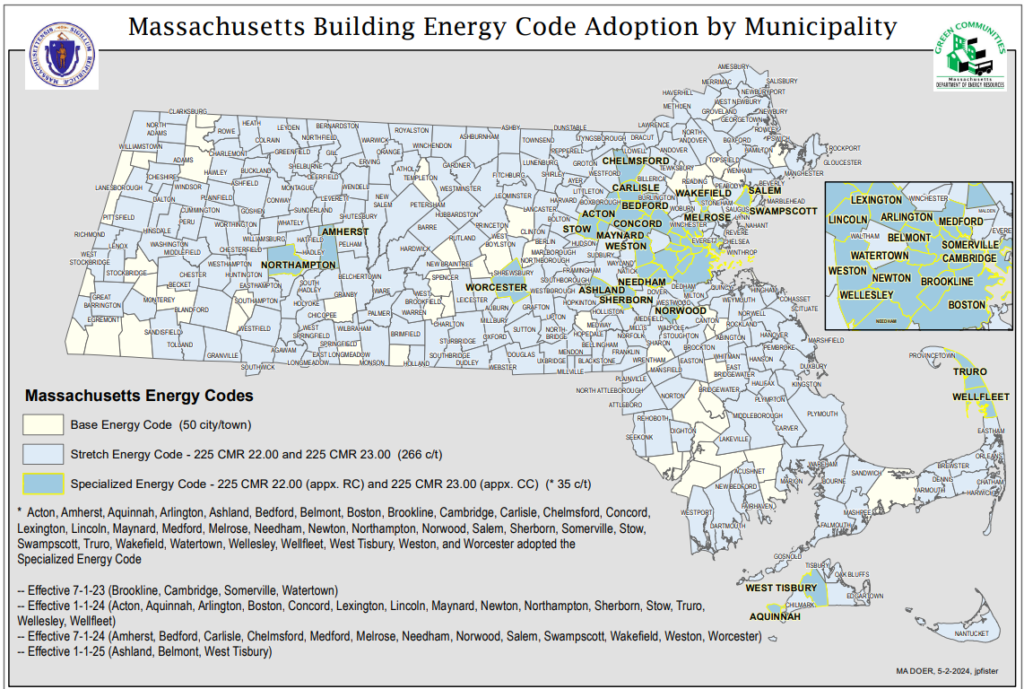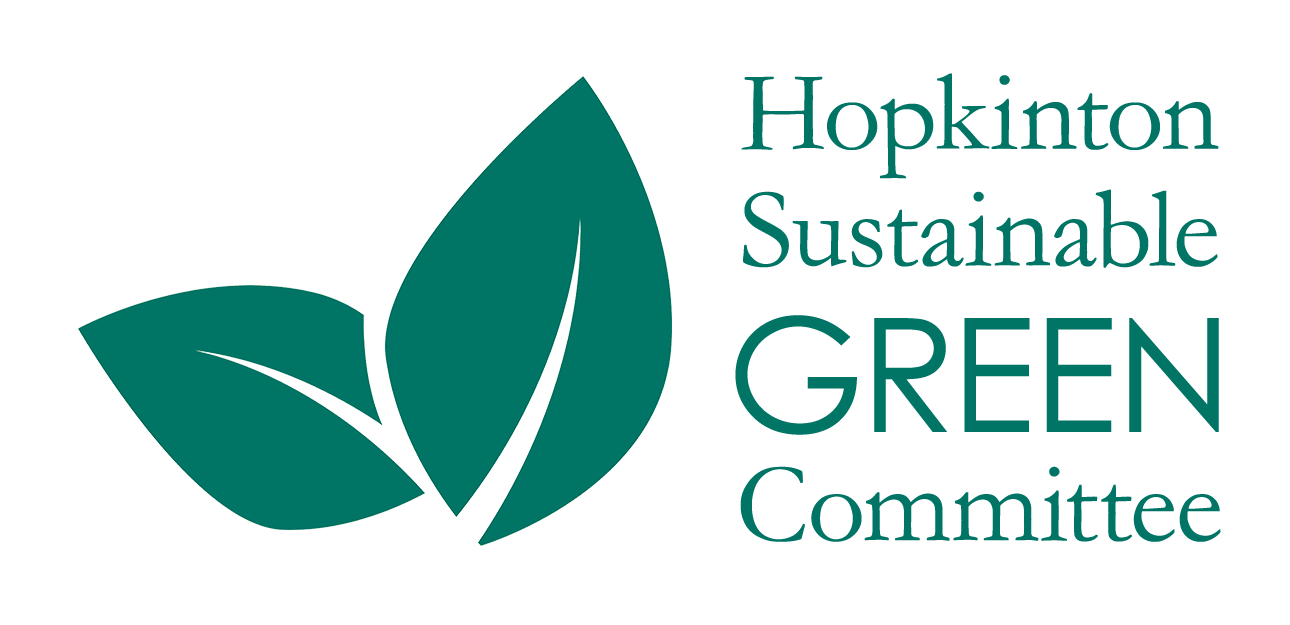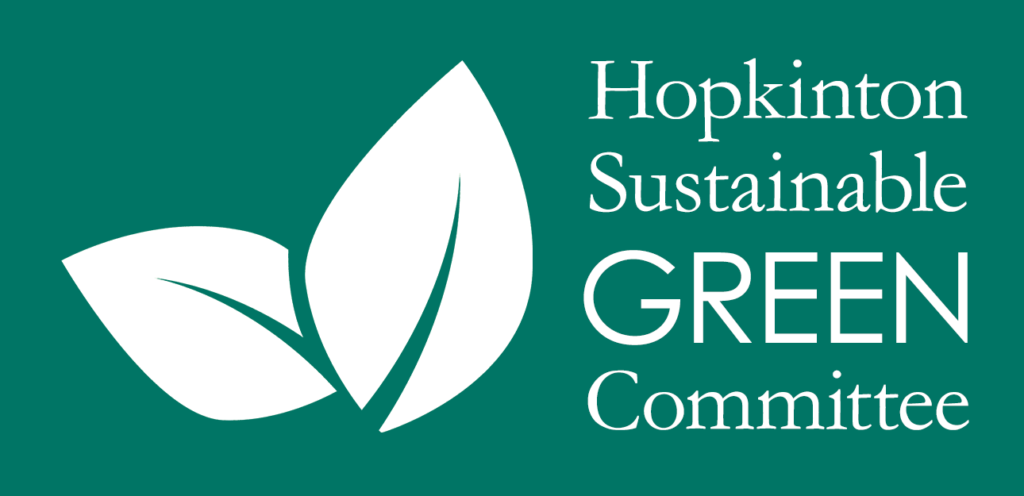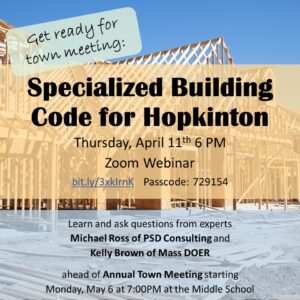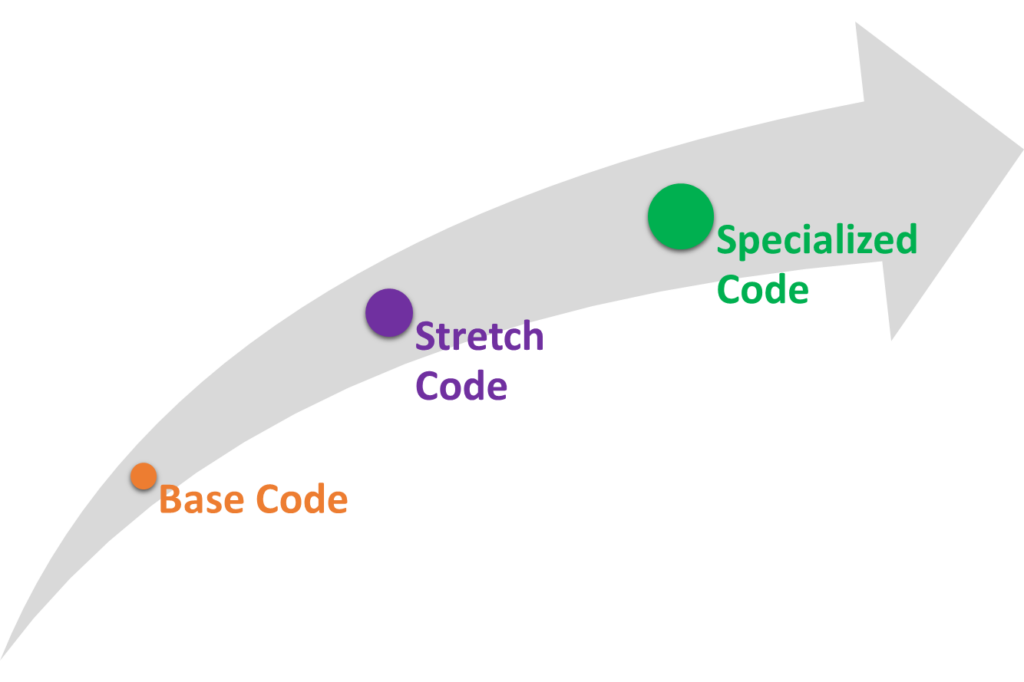
History
Massachusetts has three levels of building codes: base code, stretch code, and specialized code.
In 2010, Hopkinton was among the early adopters of the stretch code, setting the town on a path of energy efficient construction. Since then, 1344 buildings have been erected.
- 89 of these buildings, or nearly 7%, were between 4,000 and 12,000 sq. ft.
- 13, or nearly 1%, were larger than 12,000 sq. ft. Examples include the Windsor Apartments, part of Legacy Farms, the Fairview Estates retirement community, Marathon School, and businesses on South Street.
All 1344 buildings followed the stretch code, aligning the town with significantly lower emissions than if those buildings had been constructed with the base code.
In January 2023, a new municipal opt-in option became available with the specialized code. The specialized code takes the necessary step forward to enable buildings that are not dependent on fossil fuels. The code builds on the existing stretch code but only applies to new construction, including residential, multi-family, and commercial construction.
In May 2024, Hopkinton has the opportunity to adopt the specialized code at Town Meeting.
Adoption status
To date, 91.5% of the state population has moved to at least the stretch code. However, even considering recent enhancements to the stretch code, it alone will not be enough to meet Massachusetts climate targets.
In the first year of availability, many municipalities in MA jumped at the opportunity to adopt the new specialized code and be climate leaders in Massachusetts. The specialized code is effective or planned for municipalities that represent 27% of the state population.
The specialized code has been accepted by a wide range of municipalities, from cities such as Boston and Cambridge known for their biotech industry and multifamily housing to suburban towns very similar to Hopkinton, such as Ashland, Sherborn, Acton, Concord, and Wellesley. There is a high density of specialized code adoption in the towns surrounding Boston, meaning it will quickly become the norm in new developments construction in our region. The number of municipalities is expected to continue to grow quickly as more towns have their 2024 annual town meeting in the spring.
